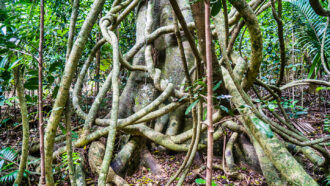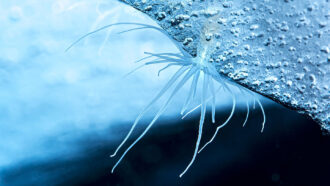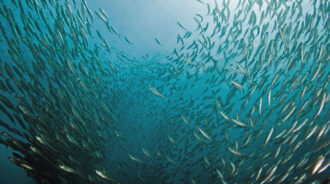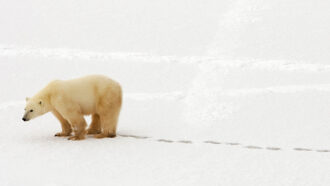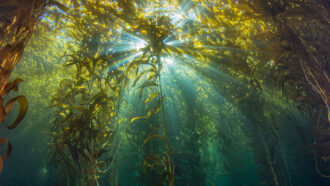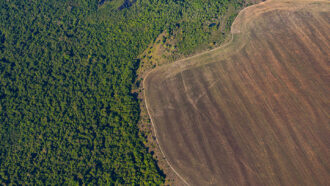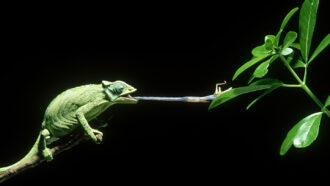Pooping ducks can shed the live eggs of fish
The finding may help explain how invasive fish, such as carp, reach isolated waterways
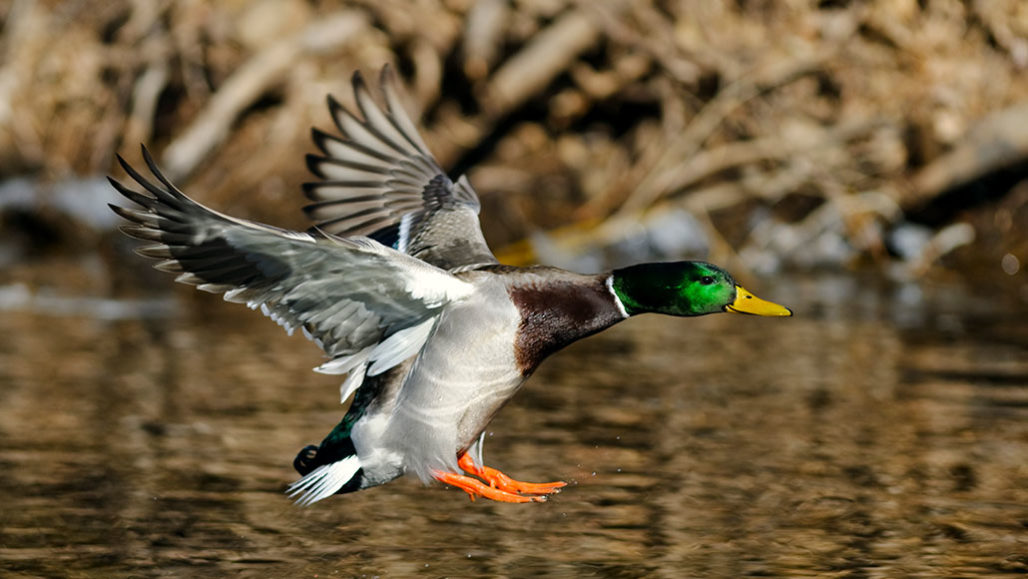
A few soft eggs from fish survived passage through a mallard’s gut before being pooped out. If this happens in the wild, defecating water birds may be able to spread invasive fish.
ElementalImaging/E+/Getty Images
For fish eggs, getting gobbled up by a duck means a harrowing journey through the bird’s gut. That includes a grinding in the gizzard, an organ in which stones smash the duck’s food. The eggs also will be attacked by stomach acids. Most eggs won’t survive. But a few may exit unharmed in the duck’s poop, a new study finds. Those eggs may transport fish, including invasive species, to new places.
Many fish eggs are soft and jelly-like. “People just didn’t believe that it was possible” for such soft eggs to survive a bird’s gut, says Orsolya Vincze. She’s a biologist who studies evolution and ecology at the Center for Ecological Research in Debrecen, Hungary.
Vincze and her colleagues decided to test the idea anyway. They fed eight mallard ducks thousands of fish eggs from two species of carp. Carp is a type of fish that includes many ecosystem invaders. Just 18 eggs out of some 8,000 were intact after being defecated by the birds. Some of the 18 contained wriggling embryos. A few even hatched. That was “quite unexpected,” Vincze says. Her team reported its findings June 22 in the Proceedings of the National Academy of Sciences.
Despite the low egg survival in this study, bird poop might still have a big impact if one considers how many fish and birds may be dining on nutrient-rich fish eggs in the wild. “It’s quite a high possibility that it will add up,” Vincze says. A single, large carp can release hundreds of thousands of eggs at a time, she notes.
Egg drop delivery
Isolated bodies of water are often populated by fish. And it was an “open question for centuries” how this was possible, says Patricia Burkhardt-Holm. She’s a fish biologist at the University of Basel in Switzerland. The new study shows how water birds, such as ducks, may be part of that spread, she says. Even if the ducks fly only a few kilometers (miles) before releasing egg-laden feces, that would be far enough to possibly spread fish from one lake to another. “It’s a very important piece of work,” Burkhardt-Holm concludes.
Still, Burkhardt-Holm says more research is needed to fully understand the risks. The scientists need to study whether pooped-out fish eggs continue to develop after hatching. And to make sure the new finding wasn’t a coincidence, the team should repeat its experiment using other fishes’ eggs and other bird species.
Vincze agrees. An egg’s size and other traits may influence its survival passing through a bird, she says. And how long eggs spend in the water before hatching may affect how likely they are to be eaten. But “a really big question,” she says, is “whether this can be observed in nature.” So her group plans to look for evidence that bird poop may be shedding live eggs in the wild.
Quick journey
Most eggs in the new study passed through a duck within one hour. These birds can fly up to 60 kilometers (37 miles) per hour. If a duck took flight immediately after an egg meal, it could travel dozens of kilometers before dropping those eggs, Vincze’s team now suggests. One egg took at least four hours to pass. In that time, the duck could travel hundreds of kilometers.
Giliandro Silva is a biologist at Universidade do Vale do Rio dos Sinos in São Leopoldo, Brazil. In 2019, he was part of a team that found killifish eggs can survive a trip through a swan’s gut. These eggs have an outer membrane that makes them less vulnerable than soft eggs. The new study provides good evidence that such egg dispersal “may be more common than we thought,” Silva says.
But we shouldn’t lay the blame for the spread of invasive fish at the feet of ducks, he says. “Most invasive species were introduced and spread by human activities,” he says. This includes some carp species that were introduced in the southern United States in the 1970s. The fish were supposed to help control the growth of algae in ponds on fish farms. But they escaped and made their way to natural wetlands in the Mississippi River Basin. “If not for the human action,” Silva says, “these invasive fish species would hardly have left their region of origin.”
